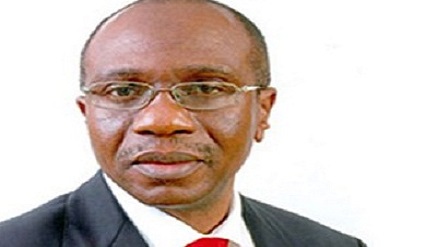E-Financial
New Rules to Ban Bailout for ‘Too Big to Fail’ Banks

New global rules to prevent banks that are “too big to fail” from being bailed out by taxpayers have been proposed, according to BBC.
The rules, created by the Financial Stability Board (FSB), a global regulator, will require big banks to hold much more money against losses. Mark Carney, FSB chairman and governor of the Bank of England, said the plans were a “watershed” moment.
BBC quoted him as saying that it had been “totally unfair” for taxpayers to bail out banks after the financial crisis of 2008 and 2009.
“The banks and their shareholders and their creditors got the benefit when things went well,” he told the BBC.
“But when they went wrong the British public and subsequent generations picked up the bill – and that’s going to end”.
Mr Carney explained that the new system would ensure that bank shareholders, and lenders to banks such as bondholders, would become first in line to bear the brunt of future losses if banks could not pay out of their own resources.
“Instead of having the public, governments, [and] the taxpayer rescue banks when things go wrong; the creditors of banks, the big institutions that hold the banks’ debt – not the depositors – will become the new shareholders of banks if banks make mistakes.”
“Let’s face it, the system we’ve had up until now has been totally unfair,” he added.
At its peak in the UK alone, taxpayers’ direct subsidy to banks stood at more than £1 trillion according to a recent report from the National Audit Office.
In the wake of the financial crisis, world leaders asked the FSB to come up with proposals to prevent similar bailouts from happening in the future.
The proposed new rules, which are up for consultation and should take effect in 2019, require “global systemically important banks” to hold a minimum amount of cash to ensure they will be able to survive big losses without turning to governments for help.
The capital set aside should be worth 15-20% of the bank’s assets, the FSB said. That is a far bigger cushion against losses than is required by current banking rules.
RBS sign The UK government still owns an 80% stake in Royal Bank of Scotland
The FSB hopes this stronger policy will prevent taxpayers from being forced to pay billions of pounds again to stop big banks from collapsing, in the event of another financial crisis.
Anthony Browne of the British Bankers’ Association welcomed the proposals.
“The banking industry strongly supports this work, which is a really important step in ending ‘too big to fail’ and ensuring that never again will taxpayers have to step in to bail out banks,” he said.
“We agree with the aims and objectives of the proposals for total loss absorbing capacity (‘TLAC’), that there should be sufficient resources available to absorb losses in the event of bank failure and provide new capital to ensure critical economic functions can continue to be provided,” he added.
Less disruption
“Agreement on proposals for a common international standard on total loss-absorbing capacity for [big banks] is a watershed in ending ‘too big to fail’ for banks,” said Mr Carney.
“Once implemented, these agreements will play important roles in enabling globally systemic banks to be resolved without recourse to public subsidy and without disruption to the wider financial system.”
According to the BBC’s business editor Kamal Ahmed, analysts estimate the new capital requirements could cost €200bn (£157bn) for Europe’s banks alone, with the cost for globally significant banks in the US, Japan and China likely to be much higher.
The FSB has published a list of 30 banks it regards as “systemically important”, meaning their collapse could have a wider impact on global financial systems.
In the UK, the banks are Barclays, Standard Chartered, HSBC and the Royal Bank of Scotland.
Lloyds Banking Group has been removed from the list as its potential impact on financial systems has declined in recent years.
The UK government spent around £65bn directly bailing out RBS and Lloyds during the crisis. The government still owns an 80% stake in RBS and 25% of Lloyds.
Analysis: Andrew Walker, economics correspondent, BBC News.
Lehman Brothers was the classic case of a financial institution that was too big to fail – or at least it probably was according to the previous Federal Reserve chairman Ben Bernanke.
Of course it DID fail, and the financial crisis entered a new and more dangerous phase after Lehman filed for bankruptcy in September 2008. The immediate lesson that many policy makers drew – and this is contested – was that it should have been rescued.
And so they decided that other big financial firms would not fail and taxpayers’ money was thrown at the banks around the world.
But there is another lesson drawn from the Lehman episode: that it would be far better to change the rules of finance to ensure that any bank could safely fail if it gets into serious difficulty no matter how big it is.
That’s where the Financial Stability Board’s new proposals come in.
E-Financial
Keystone Bank, Enterprise Devt Centre Sign MoU To Empower SMEs ln Nigeria

Keystone Bank Limited and the Enterprise Development Centre (EDC) of Pan-Atlantic University have signed a landmark Memorandum of Understanding (MoU) to promote Small and Medium Enterprises (SMEs), youth entrepreneurship, and financial inclusion across Nigeria.

The MoU signing ceremony took place at the bank’s head office in Lagos on Tuesday, June 24, 2025.
Speaking at the event, Mrs Nnenna Anyim Okoro, the Executive Director, Corporate and South, Keystone Bank, described the partnership as a bold and strategic step toward accelerating national economic transformation.
According to her, the collaboration underscores Keystone Bank’s unwavering commitment to empowering the next generation of business leaders and fostering an inclusive financial ecosystem.
“At Keystone Bank, we believe that entrepreneurship is the heartbeat of sustainable economic development.
Across Nigeria, MSMEs are not just businesses; they are the dreams and daily struggles of men and women determined to create value, provide jobs, and build a better future. They are, quite literally, the engine room of our national economy.
“Our sponsorship of the Annual EDC SME Conference 2025 and support for the Global Entrepreneurship Week (GEW) Walk reflect our deep belief in the transformative power of small businesses.
“This partnership is also about financial inclusion, youth engagement, capacity building, job creation, and collaboration,” she stated.
Olayemi Sule, Group Head, Retail & Digital Banking, Keystone Bank, emphasized the innovative offerings customers can expect as a result of the partnership.
“Our customers should look forward to a suite of innovative financial products and digital solutions specifically designed to support business growth, enhance financial literacy, and improve market access.
Also speaking, Dr. Nnenna Ugo, EDC board member and Head, Alumni Relations and Support Services at Pan-Atlantic University, expressed optimism about the partnership’s long-term impact.
“We are super excited about this partnership and confident that it will drive transformation for both institutions.
“The EDC was established to build capacity and provide support services for SMEs. In the past 21 years, we have trained over 350,000 entrepreneurs across Nigeria.
“Keystone Bank’s support comes at a critical moment as we scale our programs and expand our reach ahead of the 2025 SME Conference and GEW Nigeria.
“The SME Conference is a powerful platform that brings together key players in the ecosystem each year to address pressing issues affecting small businesses.
“This collaboration strengthens our capacity to engage more entrepreneurs, provide deeper insights, and drive conversations that inspire growth, resilience, and innovation.
“We commend Keystone Bank’s leadership for its vision and dedication to inclusive economic growth. The bank has truly distinguished itself as a champion of enterprise, and we are proud to have them as a strategic partner,” she concluded.
As part of the agreement, Keystone Bank becomes the major sponsor of the 2025 EDC SME Conference and a key supporter of the GEW Walk, a flagship event during Global Entrepreneurship Week Nigeria 2025.
Both events are expected to attract thousands of entrepreneurs, investors, thought leaders, and policymakers, offering a vibrant platform for knowledge-sharing, networking, and business empowerment.
E-Financial
Fidelity Bank Clears the Air: MD Not Linked to Woobs Case

Fidelity Bank Plc on Wednesday refuted claims that its Managing Director, Dr. Nneka Onyeali-Ikpe, is involved in an ongoing fraud case concerning the account of Woobs Resources.

The Bank’s position follows reports published by Sahara Reporters alleging that Dr. Onyeali-Ikpe was listed as a defendant in the case.
However, documents sighted by Nigeria CommunicationsWeek revealed that the charge sheet dated May 12, 2025, named the defendants as Victor Ukutt, Fidelity Bank Plc, Whoba Ugwunna Ogo, and Safiya Whoba.
A statement by the Office of the Attorney General of the Federation and Minister of Justice dated June 9, 2025, confirmed that Onyeali-Ikpe’s name was struck off the charge list.
The Ministry noted that she was neither the Managing Director nor the account officer at the time the account in question was opened.
The clarification aims to dispel misinformation and uphold the integrity of the institution and its leadership.
E-Financial
EFCC Drags Cititrust to Court over Unreported ₦200mTransfers

Federal High Court in Lagos has fixed July 1, 2025, for the commencement of trial in a money laundering case involving Cititrust Holdings PLC and three of its subsidiaries.

The subsidiaries are Cititrust Funding PLC, Cititrust Credit Limited and Cititrust Financial Services Limited,
The companies are facing an eight-count charge filed by a team of prosecutors from the Economic and Financial Crimes Commission (EFCC), comprising Anasoh Henry Onyekachi, Frankklin Ofoma, Abdulhamid Lamido Tukur, and A.A. Usman.
According to the charge, between 2021 and 2023, the companies, all incorporated in Nigeria, allegedly operated investment management services without a valid licence from the Central Bank of Nigeria (CBN).
This act contravenes Section 57 of the Banks and Other Financial Institutions Act (BOFIA) 2020 and is punishable under Section 57(5) of the same legislation.
The prosecution also alleged that the companies conducted a Collective Investment Scheme without registering with the Securities and Exchange Commission (SEC), another violation of regulatory requirements.
In one of the counts, Cititrust Credit Limited is specifically accused of failing to report high-value financial transactions to the Nigerian Financial Intelligence Unit (NFIU).
These transactions include a N20 million transfer on January 7, 2021; a N200 million transfer on April 4, 2021; and a N200 million lodgement on January 29, 2021.
Additionally, both Cititrust Credit Limited and Cititrust Financial Services Limited are alleged to have made a single transfer and lodgement respectively of N42 million into their bank accounts on January 29, 2021, without proper disclosure to relevant authorities.
The alleged offences are in breach of Sections 11(1)(b) and 11(3) of the Money Laundering (Prohibition) Act 2022, as well as Section 54(1) of the Investment and Securities Act 2007, and are punishable under the respective laws.
The court is expected to begin full proceedings on July 1.

 Telecom2 days ago
Telecom2 days agoLebara, New Operator Enters Nigerian Telecom Arena, Sells Minutes, Not Airtime

 General News1 day ago
General News1 day agoOpenAI Unveils New AI Agent for Software Developers

 E-Business2 days ago
E-Business2 days agoOver 7m Streaming Accounts’ Credentials were Leaked in 2024 – Report

 E-Financial2 days ago
E-Financial2 days agoFidelity Bank Uplifts Old People’s Home with Essential Items Donation

 E-Financial2 days ago
E-Financial2 days agoS&P Global Ratings Downgrades Ecobank Nigeria’s Credit Rating to CCC-, Outlook Negative

 Telecom2 days ago
Telecom2 days agoPIN Pushes for Equitable Digital Governance at World Internet Forum

 Telecom1 day ago
Telecom1 day ago15 African Startups Using AI Selected for Google Accelerator Cohort 9

 E-Financial2 days ago
E-Financial2 days agoEFCC Drags Cititrust to Court over Unreported ₦200mTransfers
















